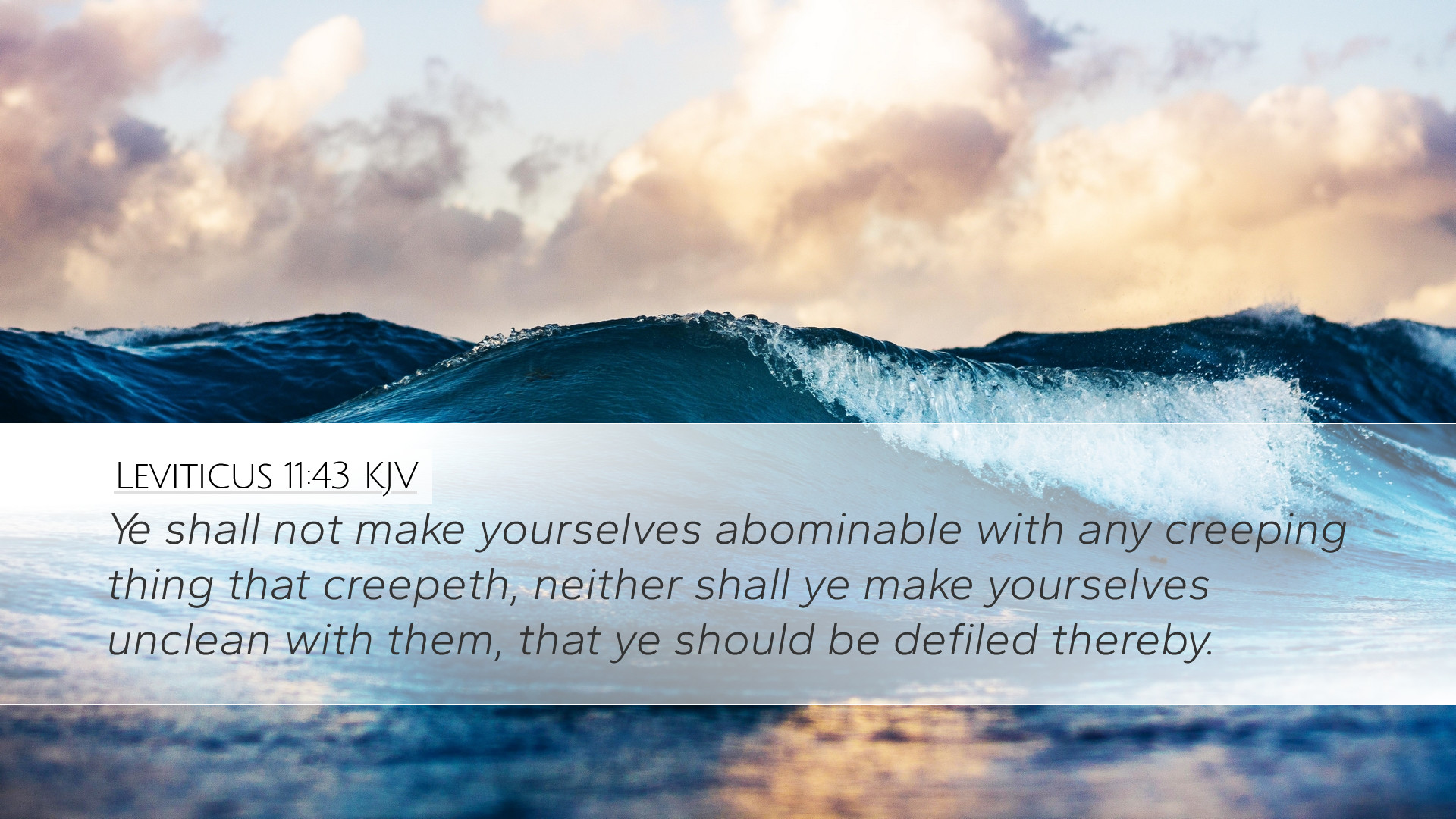Commentary on Leviticus 11:43
Verse Text: "You shall not make yourselves detestable with any creeping thing that creeps, nor shall you make yourselves unclean with them, lest you be made unclean."
Introduction
Leviticus 11:43 serves as a pivotal text in the Pentateuch, encapsulating the broader themes of holiness, cleanliness, and the covenantal relationship between God and His people. This verse is part of a larger discourse on dietary laws and the distinctions between clean and unclean animals, which are significant for understanding Israel's identity and divine calling.
Contextual Background
The holiness code found in Leviticus provides regulations that delineate Israel's lifestyle as a reflection of their relationship with Yahweh. The instructions given encompass both moral and ceremonial laws, emphasizing a dual aspect of holiness: being set apart for God and adhering to a lifestyle that is in accordance with His requirements.
Thematic Insights
-
Holiness and Separation:
The command in Leviticus 11:43 underscores the call to separation from those things deemed unclean. Matthew Henry elaborates on the holiness theme, indicating that these laws were not arbitrary but intended to instill a deep sense of reverence and respect for God's purity.
-
Symbolism of Clean and Unclean:
Albert Barnes discusses the symbolic representations inherent in the dietary laws. The distinctions between clean and unclean animals serve not only practical purposes but also function as a spiritual metaphor for moral and spiritual integrity among God's chosen people.
-
Community and Identity:
Adam Clarke highlights the larger community aspect of these regulations, suggesting that adherence to these laws would bolster national and communal identity among the Israelites. The dietary restrictions integrate the community into a collective understanding of holiness, placing them under the divine mandate.
Application for Modern Believers
While the ceremonial laws of the Old Testament do not apply to Christians in the same way they did to ancient Israel, there remains a vital lesson in maintaining holiness. The New Testament reiterates the call for believers to be set apart, as seen in 1 Peter 1:15-16, where the call to holiness is echoed.
Practical Implications:
-
Holiness in Behavior:
Just as the Israelites were to avoid things that would make them unclean, modern believers are called to avoid behaviors and influences that detract from their walk with God. This can encompass the media consumed, the company kept, and the choices made in daily life.
-
Community Standards:
Just as the laws created a standard for the community of Israel, churches today are encouraged to promote holiness within their congregations. This defines not only individual belief but also collective identity as the body of Christ.
-
The Importance of Teaching:
Pastors and teachers have the responsibility, much like the Levites of old, to instruct their congregations on living a life that reflects the holiness of God. Teaching should extend beyond the pulpit into authentic applications of faith in everyday contexts.
Conclusion
Leviticus 11:43, while situated in ancient law, continues to echo God’s timeless call for holiness among His people. In combining insights from Matthew Henry, Albert Barnes, and Adam Clarke, we gain a richer understanding of how these decrees served both a practical and a profound spiritual purpose. As we reflect on this verse, may it inspire believers today to live lives that reflect God’s holiness and integrity in every aspect.


